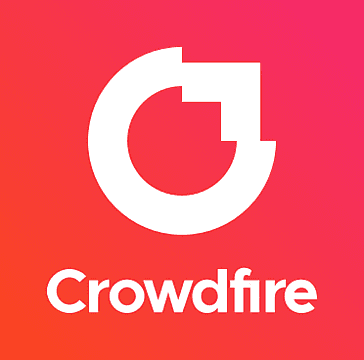In today’s digital age, social media has become the battlefield for brands to capture attention, engage with audiences, and drive growth. With the plethora of platforms and the constant need for fresh, engaging content, managing social media can feel like juggling knives while blindfolded. Enter the heroes of our story: CoSchedule and Crowdfire, two of the most talked-about social media management tools in the digital marketing arena. But which one will be your ally in the quest for social media supremacy? Let’s dive deep, compare, and discover the best fit for your brand.
| CoSchedule | Crowdfire |
|---|---|
 |  |
| G2 Score – 4.4 out of 5 | G2 Score – 4.0 out of 5 |
| TrustRadius Score – 8.3 out of 10 | TrustRadius Score – Nil |
Ease of Use: The First Encounter
When you first step into the world of social media management tools, the initial impression often sets the tone for your long-term relationship. The ease of use, from setup to daily operations, can either be a breath of fresh air or a steep mountain to climb. Let’s explore how CoSchedule and Crowdfire greet their users and what it says about their approach to making your life easier.
CoSchedule: The Organized Assistant
Imagine walking into a well-organized office where everything has its place, and there’s a clear plan for the day. That’s CoSchedule for you. Known for its intuitive interface, CoSchedule makes a great first impression by guiding you through a seamless setup process. It’s like having a personal assistant who knows exactly what you need before you even ask.
Once you’re past the initial setup, CoSchedule’s real charm shines through its calendar view. This isn’t just any calendar; it’s a comprehensive dashboard that integrates your social media posts, content marketing, emails, and project tasks all in one place. The drag-and-drop functionality is a game-changer, allowing you to adjust your content schedule with ease. It’s as if CoSchedule anticipates the chaos of content management and hands you a magic wand to put everything in order.
For teams, CoSchedule acts as a central hub where collaboration doesn’t just happen; it flourishes. Assigning tasks, setting deadlines, and communicating feedback are all streamlined. The platform’s commitment to organization and efficiency is evident in how it reduces the need for external tools, making your workflow as smooth as peanut butter.
Crowdfire: The Friendly Guide
Now, imagine stepping into a vibrant marketplace, where a friendly guide awaits to show you around, making sure you don’t miss any hidden gems. That’s the essence of Crowdfire. Right from the start, Crowdfire focuses on simplifying social media management for its users. Its setup process is quick and straightforward, asking you a series of questions to tailor the experience to your needs.
Crowdfire’s user interface is clean and inviting, with a focus on providing a hassle-free experience for users of all skill levels. Navigating through the platform feels like a casual stroll in the park, thanks to its intuitive design and clear, concise instructions. Crowdfire is your reliable friend who’s always there to help, whether you’re scheduling posts, discovering content, or analyzing your social media performance.
One of Crowdfire’s standout features is its content curation capability. It’s like having a personal scout who’s always on the lookout for content that will resonate with your audience. This not only saves you time but also ensures your social feeds remain fresh and engaging. Crowdfire understands the importance of keeping the conversation going on social media and provides the tools to make it happen with minimal effort.
The Verdict on Ease of Use
Choosing between CoSchedule and Crowdfire, when it comes to ease of use, largely depends on your preferences and needs. If you’re looking for a tool that offers a structured approach to managing your entire marketing schedule, CoSchedule is the way to go. Its calendar-centric design and comprehensive project management features make it ideal for teams looking for an all-in-one solution.
On the other hand, if your primary focus is on managing your social media presence with an emphasis on content discovery and simplicity, Crowdfire will not disappoint. Its user-friendly interface and powerful content curation tools are perfect for individuals and small businesses aiming to boost their social media game without getting bogged down by complexity.
Content Scheduling and Automation: The Core of Social Media Management
Diving deeper into the functionalities that truly make or break a social media management tool, let’s talk about content scheduling and automation. In the realm of social media, consistency is king, but maintaining that consistency without help is a Herculean task. Both CoSchedule and Crowdfire offer solutions to this challenge, but how they do it and the flexibility they offer can influence your decision.
CoSchedule: The Master Planner
CoSchedule takes content scheduling and turns it into an art form. The platform’s strength lies in its ability to not only schedule posts across various social platforms but to integrate these with your overall marketing calendar. This means you can see how your social media campaigns align with your email marketing, blog posts, and other project deadlines, ensuring a cohesive marketing strategy.
The ReQueue feature is where CoSchedule really shines. It allows you to automatically fill gaps in your social media schedule by reusing your best-performing content. This is incredibly useful for maintaining an active social presence without constantly creating new content. CoSchedule understands that some content deserves a second (or third) moment in the spotlight and makes it effortless to maximize the lifespan of your best work.
Additionally, CoSchedule offers detailed analytics that lets you track the performance of your social media posts. This data is crucial for refining your strategy and making informed decisions about what content to ReQueue or adjust. By giving you a bird’s-eye view of your content’s performance alongside your scheduling, CoSchedule makes it easy to iterate and improve.
Crowdfire: The Automation Ally
Crowdfire approaches content scheduling with a keen eye on automation and efficiency. It simplifies the process of keeping your social media feeds active by allowing you to schedule content across multiple platforms with just a few clicks. Crowdfire’s user-friendly interface makes scheduling not just easy but enjoyable.
What sets Crowdfire apart is its smart automation features, particularly the “Best Time to Post” functionality. This feature analyzes your social media activity to determine the optimal times for posting, ensuring your content reaches the maximum audience. This level of automation is like having a social media expert constantly optimizing your posting schedule for engagement.
Crowdfire also excels in content curation and recommendation, which ties beautifully into its scheduling capabilities. The platform suggests articles, images, and even user-generated content that can be quickly scheduled for posting. This not only aids in keeping your feed fresh but also significantly reduces the time spent searching for relevant content.
The ability to queue evergreen content is another standout feature, ensuring that your social media feeds never run dry. Crowdfire’s emphasis on automation extends to this feature, enabling you to recycle your best content automatically, based on your settings and preferences.
Choosing Your Scheduling Champion
When it comes to content scheduling and automation, both CoSchedule and Crowdfire offer compelling features, but your choice will depend on the nature of your needs. If your focus is on comprehensive marketing strategy integration and maximizing the impact of your content through smart recycling, CoSchedule’s detailed calendar and ReQueue feature will serve you well.
Conversely, if you value simplicity, efficiency, and the power of automation in determining the best times to post and finding content to keep your audience engaged, Crowdfire’s approach will likely resonate with you. Its intuitive scheduling, coupled with smart automation and content recommendations, make it a formidable ally for anyone looking to streamline their social media management.
As we delve into more aspects of these two powerful tools, remember that the right choice for you depends not just on features but on how those features align with your specific social media goals and workflows.
Analytics and Reporting: Deciphering the Impact
Understanding the impact of your social media efforts is crucial to refining your strategy and proving ROI. Analytics and reporting capabilities are therefore pivotal features of any social media management tool. Both CoSchedule and Crowdfire offer insights into your social media performance, but they do so with different focuses and depths of analysis. Let’s explore how each platform helps you measure success and make data-driven decisions.
CoSchedule: The Strategic Analyst
CoSchedule provides comprehensive analytics that help you track the performance of your entire marketing strategy, not just your social media activities. This holistic approach ensures that you can see how each piece of your marketing puzzle fits together and contributes to your overall goals. The platform offers detailed reports on social media engagement, including likes, shares, comments, and overall reach, allowing you to gauge the effectiveness of your content and strategy.
What makes CoSchedule stand out is its ability to integrate these analytics with your content calendar, giving you a clear picture of how your planned content is performing in real-time. This integration is invaluable for teams looking to adjust their strategies on the fly and ensure that their marketing efforts are aligned and effective.
Moreover, CoSchedule’s analytics are not just about presenting data; they’re about offering actionable insights. The platform helps you understand the best times to post, the type of content that resonates with your audience, and how your social media efforts are contributing to your marketing goals. This level of detail and integration is ideal for marketers who need to report on performance across various channels and campaigns.
Crowdfire: The Engagement Expert
Crowdfire takes a slightly different approach to analytics, with a strong emphasis on engagement and growth metrics. The platform provides detailed insights into how your content is performing on each social network, including follower growth, engagement rates, and the best-performing content. This focus on engagement metrics is particularly useful for businesses and individuals who are looking to build their brand and cultivate a loyal following on social media.
One of the standout features of Crowdfire’s analytics is its simplicity and clarity. The platform presents data in an easily digestible format, making it accessible for users of all skill levels. You don’t need to be a data scientist to understand your social media performance; Crowdfire makes it easy to grasp the essentials at a glance.
Additionally, Crowdfire offers custom reporting, allowing you to tailor your reports to focus on the metrics that matter most to you. This level of customization is great for marketers who need to report specific results to stakeholders or who are focused on achieving specific goals, such as increasing engagement or growing their audience.
Making Data-Driven Decisions
When deciding between CoSchedule and Crowdfire based on analytics and reporting, consider what type of insights are most valuable to you and your team. If you need a comprehensive view of your marketing efforts and how your social media strategy fits into the bigger picture, CoSchedule’s integrated analytics and actionable insights will be incredibly beneficial.
On the other hand, if your primary focus is on building engagement and understanding the performance of your content on a granular level, Crowdfire’s focused and user-friendly analytics will meet your needs. The platform’s emphasis on engagement and growth metrics, combined with the ability to customize reports, makes it a strong option for brands and individuals keen on optimizing their social media presence.
Both CoSchedule and Crowdfire offer powerful tools to help you understand and improve your social media strategy. The right choice depends on the scope of your needs and the level of detail you require from your analytics.

Related: Check out our free SEO suite

Pricing and Value: The Investment Perspective
When it comes to choosing a social media management tool, pricing plays a significant role. It’s not just about the cost but also the value each platform offers for that price. Both CoSchedule and Crowdfire have structured their pricing to cater to different needs, offering a range of features across various plans. Let’s break down the pricing structures of CoSchedule and Crowdfire to help you determine which offers the best value for your investment.
| CoSchedule | Marketing Calendar: The free version offers a basic marketing calendar for planning and scheduling.Marketing Suite: Custom pricing based on the needs of your team or organization, including content marketing, social media scheduling, work management, and more. |
| Crowdfire | Free Plan: Crowdfire offers a free version that includes 1 linked account per social network and up to 10 scheduled posts per account.Plus Plan: Starting at $7.48 per month (billed annually), this plan allows for 2 accounts per social network and 100 scheduled posts per account.Premium Plan: At $37.48 per month (billed annually), offering 5 accounts per social network and 800 scheduled posts per account, plus additional features like competitor analysis.VIP Plan: Starting at $74.98 per month (billed annually), with 25 accounts per social network and 800 scheduled posts per account, designed for larger teams and agencies. |
CoSchedule: Comprehensive Yet Costly
CoSchedule positions itself as a premium, all-in-one marketing calendar designed to serve the needs of marketers, bloggers, and businesses looking for a comprehensive solution to manage their entire marketing strategy. The pricing reflects this positioning, with plans that cater to different sizes of businesses and teams.
The entry-level plan starts with a focus on solopreneurs and small teams, offering basic calendar features and social media scheduling. As you move up the tiers, CoSchedule introduces more sophisticated features like advanced analytics, team collaboration tools, and integrations with other marketing tools. The top-tier plans are geared towards larger organizations that need extensive project management capabilities, custom integrations, and dedicated support.
While CoSchedule’s pricing can be on the higher side, especially for small businesses and individuals, the value proposition lies in its ability to consolidate multiple tools into one. If you’re looking for a platform that can handle not just social media scheduling but also content marketing, email campaigns, and project management, the cost might be justifiable.
Crowdfire: Accessibility and Affordability
Crowdfire, on the other hand, is known for its accessibility and affordability. The platform offers a free plan with limited features, which is a great starting point for individuals, freelancers, and small businesses just dipping their toes into social media management. This free plan includes basic scheduling features and content curation, providing value without any financial commitment.
As you scale up, Crowdfire’s paid plans introduce more advanced features such as competitor analysis, bulk scheduling, and more detailed analytics. Even at the higher tiers, Crowdfire remains relatively affordable compared to CoSchedule, making it an attractive option for businesses and individuals on a tighter budget.
Crowdfire’s pricing structure is designed to grow with your needs, allowing you to start small and upgrade as your social media presence expands. This flexibility, combined with the platform’s focus on content curation and engagement, offers significant value for marketers looking to maximize their social media impact without breaking the bank.
Evaluating the Best Investment for You
Deciding between CoSchedule and Crowdfire based on pricing and value requires a careful evaluation of your specific needs, budget, and long-term goals. If you’re in need of a robust, all-encompassing marketing tool that will serve as the central hub for all your marketing activities, CoSchedule may be worth the investment. Its comprehensive features and ability to streamline your marketing workflow can save time and enhance productivity, potentially offsetting the higher cost.
Conversely, if your primary focus is on managing your social media presence efficiently and you prefer a tool that’s easy on the wallet while still offering growth potential, Crowdfire’s affordability and flexible pricing structure will appeal to you. Its emphasis on content curation, engagement analytics, and user-friendly interface provides excellent value for those looking to optimize their social media strategy without a hefty price tag.
Ultimately, the choice between CoSchedule and Crowdfire comes down to which platform aligns best with your marketing needs, team size, and budget constraints. Both tools offer unique strengths and pricing models designed to cater to different segments of the market.
Integration Capabilities: Extending Your Digital Ecosystem
In today’s interconnected digital landscape, the ability of a social media management tool to integrate with other software is crucial. These integrations extend the functionality of the tool, enabling it to become a more powerful and versatile component of your overall marketing strategy. Let’s explore how CoSchedule and Crowdfire stack up in terms of integration capabilities, and how this might influence your choice.
CoSchedule: The Central Hub
CoSchedule stands out for its broad range of integrations with other marketing tools and platforms. It’s designed to be the central hub of your marketing strategy, integrating not just with social media platforms but also with content management systems (CMS), email marketing services, analytics tools, and more. This extensive integration ecosystem includes popular tools like WordPress, MailChimp, Zapier, Google Analytics, and many others, allowing you to streamline your workflow and keep all your marketing activities in sync.
The benefit of CoSchedule’s approach is clear: by centralizing your marketing efforts in one place, you can achieve a level of coordination and efficiency that’s hard to match. For teams working on complex campaigns involving multiple channels and tools, CoSchedule’s integration capabilities make it an invaluable asset. It ensures that every piece of your marketing puzzle fits together perfectly, with data and updates flowing seamlessly between different platforms.
Crowdfire: Focused Connectivity
Crowdfire, while offering a narrower range of integrations compared to CoSchedule, focuses on connectivity that enhances its core functionalities: social media management and content curation. It integrates with key social media platforms, including Twitter, Instagram, Facebook, LinkedIn, and Pinterest, ensuring you can manage your presence across the major networks from a single dashboard.
Additionally, Crowdfire offers integration with tools that support content discovery and sharing, such as Canva, which is a favorite among social media managers for creating eye-catching graphics. While its integration list may not be as extensive as CoSchedule’s, Crowdfire ensures that the integrations it does offer are highly relevant to its user base, enhancing the tool’s effectiveness in social media content management and engagement.
Choosing Based on Integration Needs
The decision between CoSchedule and Crowdfire, when viewed through the lens of integration capabilities, hinges on the breadth and depth of your digital marketing ecosystem. If your strategy involves a wide array of marketing activities beyond social media, and you’re looking for a tool that can serve as the nucleus of your marketing operations, CoSchedule’s extensive integration ecosystem will likely be more appealing. Its ability to connect with a diverse range of tools can significantly streamline your workflow and enhance productivity.
On the other hand, if your focus is primarily on managing and growing your social media presence, with a particular interest in content curation and creation, Crowdfire’s more focused integration approach might be all you need. Its connectivity with major social platforms and content creation tools like Canva ensures you have the essentials covered without overwhelming you with options.
Ultimately, the right choice depends on the complexity of your marketing needs and the other tools you regularly use. For those managing comprehensive, multi-channel marketing strategies, the extensive integrations of CoSchedule could be a game-changer. Conversely, for social media-centric brands and individuals, the streamlined and focused integrations of Crowdfire could offer a more straightforward and cost-effective solution.
Customer Support and Learning Resources: Ensuring a Smooth Journey
A crucial aspect often overlooked when choosing a social media management tool is the quality of customer support and the availability of learning resources. These factors significantly impact your ability to utilize the tool effectively, especially when encountering challenges or learning new features. Let’s compare CoSchedule and Crowdfire in terms of their customer support offerings and educational materials to help you make an informed decision.
CoSchedule: Comprehensive Support and Education
CoSchedule impresses with its commitment to customer support and education. It offers a variety of support channels, including email support, live chat, and a knowledge base filled with detailed guides and tutorials. For more advanced plans, CoSchedule provides dedicated account management and onboarding sessions, ensuring that teams can get up to speed quickly and make the most out of the platform.
Beyond direct support, CoSchedule excels in providing extensive educational materials. The CoSchedule Blog is a treasure trove of marketing tips, best practices, and comprehensive guides, beneficial for both beginners and experienced marketers. Furthermore, CoSchedule offers free courses and webinars on content marketing, social media strategy, and project management, reflecting its dedication to not only being a tool provider but also an educator in the marketing space.
Crowdfire: Efficient Support and Useful Resources
Crowdfire offers a solid support structure, with a focus on efficiency and self-service. The platform provides email support and an extensive FAQ section, where users can find quick answers to common questions. While Crowdfire’s direct support options might seem more limited compared to CoSchedule, the quality of assistance is high, with responsive and helpful support teams.
In terms of educational resources, Crowdfire maintains a blog that covers a range of topics from social media tips to growth strategies. The content is geared towards helping users improve their social media presence and make better use of the Crowdfire platform. Additionally, Crowdfire occasionally offers webinars and tutorials that provide deeper insights into social media trends and platform features.
Evaluating Support and Education Offerings
The choice between CoSchedule and Crowdfire in terms of customer support and learning resources depends on your preferences for learning and the level of support you anticipate needing. CoSchedule’s comprehensive approach, including dedicated account management and a wide array of educational materials, is ideal for teams that require extensive support and wish to deepen their marketing knowledge. This is particularly valuable for organizations with complex needs or those looking to expand their marketing strategies.
On the other hand, Crowdfire’s efficient and straightforward support, coupled with useful resources, may be more than sufficient for individuals, freelancers, and small businesses focused on streamlining their social media management. If you prefer a self-service model with the option to seek help as needed, Crowdfire offers an approachable and user-friendly support system.
Both platforms are committed to ensuring users can effectively navigate their features and maximize their social media efforts. Your choice should align with the level of support you expect and your preference for learning new skills and strategies.
As we’ve explored various facets of CoSchedule and Crowdfire, it’s clear that each platform offers unique strengths tailored to different needs and preferences. Whether your focus is on comprehensive marketing management, efficient social media scheduling, detailed analytics, or robust support and education, your decision should be informed by the aspects that matter most to your marketing objectives.
Conclusion
Choosing between CoSchedule and Crowdfire boils down to your specific needs, budget, and marketing goals. CoSchedule shines as a comprehensive marketing hub, perfect for teams seeking an all-in-one solution to manage a broad array of marketing activities with advanced integrations, extensive support, and educational resources. Its capabilities are well-suited for those who need to coordinate multiple marketing channels and projects seamlessly. On the other hand, Crowdfire offers an affordable, user-friendly platform focused on efficient social media management, content curation, and engagement, making it ideal for individuals, freelancers, and small businesses looking to enhance their social media presence without the complexity or cost of more extensive tools.
Both platforms provide valuable features, including content scheduling, analytics, and support, but your choice should align with your marketing strategy’s scale and complexity. Whether you prioritize a comprehensive marketing tool or a focused social media manager, selecting the right platform is crucial for optimizing your online presence and achieving your marketing objectives.
Read Next
- 31+ Top Social Media Management tools Compared! (2023)
- Impact of Predictive Analytics on Sales Forecasting: A Deep Dive!
- SEO for Big-ticket B2B Businesses: What’s Different
- How CRM can Skyrocket your Customer Retention! (and Boost LTV)
- 21+ Ways Chatbots can Skyrocket Lead Generation and Conversions






















Comments are closed.